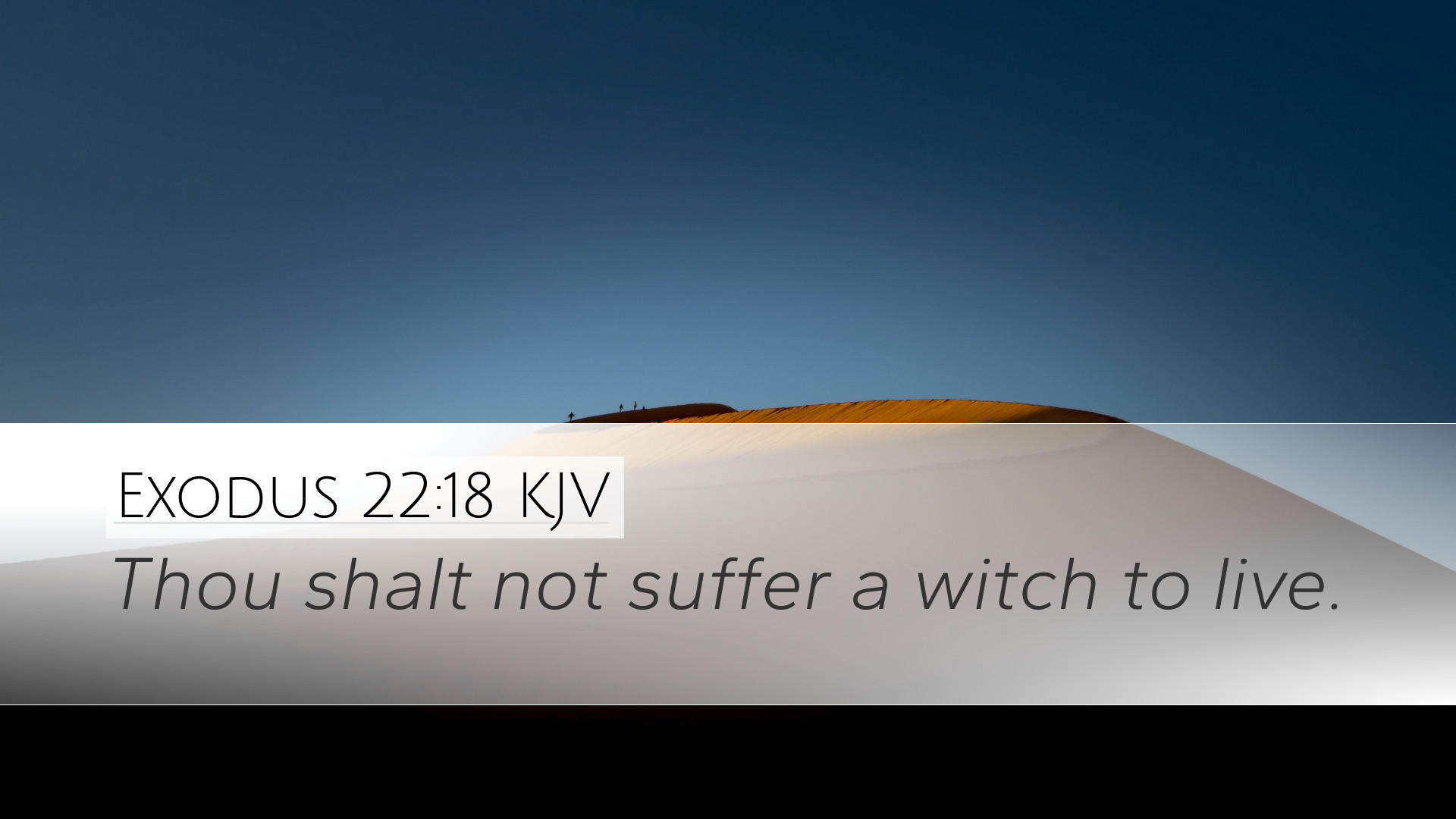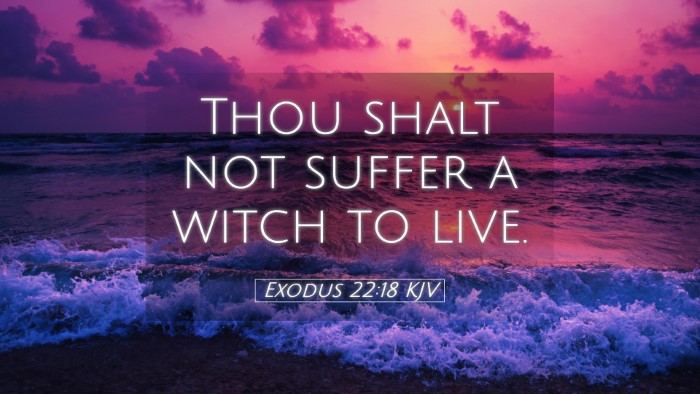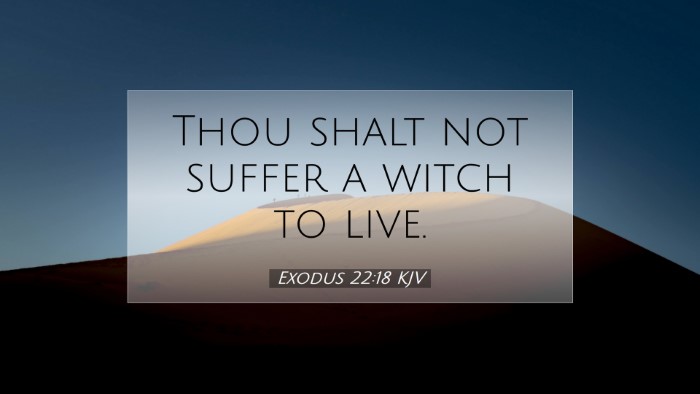Commentary on Exodus 22:18
Verse: "Thou shalt not suffer a witch to live."
Introduction
Exodus 22:18 stands as one of the more controversial verses in the Old Testament, reflecting the severe attitudes toward witchcraft and sorcery in ancient Israel. This verse is embedded within a larger context of laws that govern social justice and moral conduct, emphasizing the distinction between the worship of Yahweh and other religious practices. The severity of the command not to allow a witch to live highlights both the cultural and the theological implications of such practices in the eyes of God.
The Theological Perspective
Various commentaries elucidate the theological rationale behind the commandment. Matthew Henry outlines that the prohibition signifies God's intolerance towards idolatry and practices that undermine His sovereignty. Witchcraft represents a rebellion against divine authority, where individuals seek supernatural assistance through forbidden channels, displacing reliance on God. In the eyes of God, such practices were seen as an abomination that could lead the entire nation of Israel astray.
Cultural Context
Albert Barnes emphasizes that the ancient Near Eastern context was rife with occult practices. The Canaanite religions heavily influenced Israel, and numerous rites involved invoking spirits or seeking knowledge from the dead. God’s command thus serves as a delineation, ensuring Israel's uniqueness and fidelity to Yahweh alone.
Witchcraft in Ancient Israel
Witchcraft was often associated with paganism. Adam Clarke further elaborates on how various forms of divination, enchantments, and sorcery were branded as exceedingly perilous sins, with the potential to lead others into spiritual and moral decay. The implications of such acts warranted severe judgment as they represented not just individual disobedience but a corporate danger to the community's covenant relationship with God.
Interpretation of 'Witch'
The term "witch" itself invites scrutiny. Different translations and interpretations offer a broader understanding. Henry interprets "witch" as anyone practicing necromancy or any form of sorcery, emphasizing the gravity of consulting the dead or seeking supernatural powers outside God’s will. This term should be viewed in the light of the biblical affirmation of the sovereignty and holiness of God.
Modern Application
How does this verse translate into contemporary Christian thought? Barnes suggests that while the direct application of the death penalty for witchcraft does not transfer into modern governance or church practice, the principles underlying Exodus 22:18 remain applicable. They serve as an admonition against any practice that distracts believers from the worship of God, underscoring the danger of syncretism in faith.
Spiritual Vigilance
Clarke emphasizes on the necessity for spiritual vigilance in today's society, where various forms of the occult are becoming increasingly normalized. The admonition against witchcraft can then be interpreted as a call for believers to remain steadfast in their faith, avoiding any semblance of involvement in practices contrary to biblical standards of holiness.
Historical Context of Witchcraft Legislation
Throughout history, interpretations of this verse have led to varied responses in Christian communities, most notoriously during the witch hunts of the Medieval and Renaissance periods. Henry notes, however, that misapplication of this scripture has harmed innocent lives and formed misguided, violent responses to perceived threats of witchcraft. The appropriate understanding must root itself in love, justice, and the discernment of truth within the framework of scripture.
The Role of Scripture and Tradition
In this discussion, it is crucial to respect the role of both scripture and tradition, as seen in the interpretations of Barnes and Clarke. They assert that understanding the broader narrative of Scripture helps enforce the foundational principle that God desires a holy people, set apart for worship and reliance upon Him alone.
Conclusion
Exodus 22:18 highlights the importance of purity in worship and the dangers posed by practices that contradict God’s commands. The severity of the command against witchcraft reflects not only a cultural concern but also a foundational theological stance on the nature of God’s holiness. For pastors, theologians, and scholars, this verse serves as a reminder of the eternal truths regarding our relationship with God, urging a careful consideration of the practices we endorse and participate in today.


